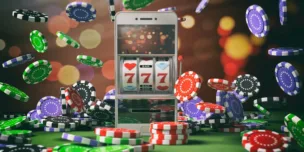
She is one of the UK’s leading experts on Problem Gambling with 3 published books on the subject. Liz has written for major newspapers including The Guardian, The Telegraph and The Daily Mail, and frequently appears on TV.
We sat down with Liz Karter to understand the dangers of gambling addiction, and even just gambling in itself. She was kind enough to walk us through how:
- Gambling is used as Emotional Medication
- Children who develop Gambling Addiction will struggle to develop emotionally
- Digital Addiction can quickly lead to Gambling Addiction
- Children often develop problematic gambling patterns to deal with pressures from school, home and their social lives
- The early addiction leads to damage later in life
This is the first in a series of 3 articles that came out of the interview.
The number of children estimated to be problem gamblers has doubled when compared to 2017. More than 55,000 British children are estimated to be problem gamblers, and another 90,000 are estimated to be at risk. What do you believe are the main causes that lead children into the loop of problem gambling?
When we look at any addiction, across the board, there are always two elements to it: habits and emotional medication.
Essentially, with gambling addiction, someone will often feel that they can manage things like stress and depression and anxiety by gambling.
Modern-day society makes it very easy for children to be led to digital addiction. Kids are introduced to smartphones very early on and it becomes a habit to be living in a digital world.
So of course, it can then seem a very short step, for example, from playing a regular game on a smartphone to gambling because the games can look very similar.
Healthy escapism can become very unhealthy when it comes to gambling because children (and adults) can lose touch with the reality of just how much money they have spent, and then panic and get hooked into a cycle of loss chasing.
When it comes to arcades, it can be very, very similar. Children can develop a habit if they are going to arcades with parents or teenage friends. Essentially it can become a normalized part of recreational activity.
Now, on one hand, there is absolutely nothing wrong with that. Gambling can be good fun and as part of recreational activity, just as the appropriate use of alcohol can too. But again, we then have the emotional medication element.
Could you walk us through just how and why people, and especially children, use gambling as emotional medication?
I think we can all remember what it’s like to be a teenager. For most of us, it wasn’t always fun. Many are struggling with school. Many are falling out with their parents. When we are at that age, we are trying to find our identity and where we fit in with our peer group.
So playing a game in an arcade can then flip from just being a healthy kind of our habit, recreation, into, again, escapism. For kids, staring up at a slot machine gives them the feeling of just zoning out.
Why would children need to zone out in this way?
The best way that we can relate to this is by thinking of times when we’ve maybe had a problem, or something was making us anxious. When you just can’t stop your thoughts going round and round, staring at a machine can actually give your mind some rest.
That is when it starts to be emotional medication.
And if the problems are not worked on and resolved, then they’re not getting any better, they’re getting worse. The child is then going to be craving more of that time standing in front of a slot machine.
If we compare gambling addiction to social gaming addiction, things like Xbox or smartphone addiction, etc, the only difference is the money. It is the factor of absorption and zoning out that becomes addictive.
What really, really worries me is that I think as parents, we are inadvertently teaching kids to self-soothe via a digital device.
How do parents do this, and why is self-soothing via a digital device harmful?
I think we’ve all seen mothers in despair because the kids are crying on the train. A few years ago she would read a book, or maybe coloured or looked out the window with the child. Now we see the mother handing the child a smartphone.
Just the other day, I saw a little baby, not even a year old, sitting in a buggy and looking at his mom’s smartphone.
That child is developing a connection with the idea that “I stare at the screen and I’m soothed”. It’s comforting, and as that toddler grows into being an adolescent, experiencing difficulties, it already has that association. It is then very, very easy to pick up the addiction of staring at a slot machine or alternatively staring at a computer screen with online gambling.
Do you think there are any differences between how adults and children develop problematic gambling patterns?
I think it’s a pretty similar process. Essentially, it tends to be about losing touch with reality in order to feel better. And then, of course, as we said, losing touch with how much money they have spent, followed by panic and loss chasing.
To give you one example:
When I train gambling industry staff on how to talk to customers that have a problem, they often tell me [the problem gamblers they talk to] are obsessed with money and think the casino games are unfair.
That is because the person with the addiction at this time thinks the only problem is that they’ve lost money. But even if they would have won their money back then, they’re still going to keep going. This is because it is, in reality, not about winning back your losses, but about emotional medication.
My concern with kids developing any addiction early, no less gambling addiction, is that they lose a valuable opportunity, which they should have at that stage of life. Namely, to be developing things like life skills, relational skills, self-reflection, learning about who they are, developing a strong identity. You know, all the things that help us to go on and be healthy, happy adults able to solve our own problems.
If they don’t have that opportunity, life will be so much harder for them.
What I do see with my own clients, in therapy, is if someone developed an addiction to gambling or to anything early on in their life, maybe when they were 17 or 18, they may be a 42-year-old man, but emotionally and mentally, he’s that 17 or 18-year-old boy.
This is because they have been so focused on addiction. They have never learnt how to cope with relationships or manage conflicts. Many have no idea how to manage their feelings, and in some extreme cases, how to even label what their feelings even are.
They can’t untangle their emotions and say this is anger, this is sadness, this is fear. It just feels like a jumbled mess.
I’m really glad you brought up child development. We have been looking at studies of how the brain develops and what they are indicating is that we have not fully developed our ability to understand repercussions or control our impulses until we are about the age of 25. How does this play into young children gambling and developing, not necessarily even problematic gambling patterns, but just gambling patterns.
I think it presents an added level of difficulty. I’m sure you’ve come across studies about kids using social games, which contain elements of gambling, for example, gaming for skins. It’s exciting, isn’t it? You’ve got the anticipation of not knowing what is inside of your loot box.
You may find the skins you are looking for, or you might not. There’s excitement, anticipation, and a bit of a high. If you’ve got a valuable skin you gain status, not to mention stats within the game.
It is like having a win at the casino table or in the bookmakers in front of your mates and you feel great because you have that win.
At a very young age, when somebody is very impulsive, it’s much more likely that they are going to get hooked on that thrill. You know how great that feels. That thrill, in itself, can be so, so addictive.
Even if that person didn’t have any problems in their life, it feels terrific. The rush that somebody gets from gambling and winning can be very similar to the rush someone gets from cocaine use.
They’re very similar. I often work with people that have cocaine addiction too. They get that high, and so, of course, that person wants other highs.
You can get a young person who just feels great. You know, they got status among their friends, they feel terrific and they’re just going to run with that feeling because they haven’t developed yet.
They do not yet have the emotional intelligence to be able to say: “Okay. In and out. That’s it. That’s a terrific feeling, that was really nice, but you know, I’m going to walk away now because if I keep going, I’m going to spend too much”.
As rational adults, we understand that for every extreme high, there’s a low.
So we moderate our behaviour. Young people can’t do that. So the danger is that they keep playing, wanting that high, and of course, sooner or later they’re going to lose. Then there’s a crash into a great depressing low, which then leads to craving another high, very similar to cocaine addiction.
It is, as I said earlier, really easy to go from this kind of social gaming to gambling online, because the games look so similar, and the child is already used to spending money on their gaming.
And of course, they just have no idea how easy it is to lose all their money. They have no idea how much they have spent until it is all gone. What happens then is that they panic, especially if they are ashamed of confiding in their parents.
That can be a very, very lonely place and a downward spiral when you’re desperately trying to take yourself out of trouble.
This week I worked with a young person of about 19, who had gotten into trouble gambling online. He is a university student and had spent all the money his parents had put into an account for him to pay his rent for the next three months.
Of course, he got terrified of telling his parents and letting them down. He was in a terrible state. He was chasing his losses and borrowing money, even from loan sharks, just to try and win himself out of trouble.
In his mind, he was trying to turn the clocks back. He thought that if he could win the money back, it would be like nothing ever happened.
That way he could keep the respect of his parents.
Of course, even when he won he kept gambling because he was addicted to that absorption and escapism and because by that stage he was just too miserable.
About Liz Karter
Liz Karter is the founder and director of Level Ground Therapy and one of the UK’s most prominent specialists on the topic of gambling addiction. She has treated both men and women at leading UK based addiction treatment agencies since 2001 and dedicating a large part of her life to not just supporting those addicted to gambling, but working with corporate clients to improve their social responsibility. Karter is an active member of Community Action for Responsible Gaming, a frequent lecturer and the author of:
- Gambling Addiction in Women: Four Weeks to Freedom
- Women and Problem Gambling
- Working with Women’s Groups for Problem Gambling
She has also contributed chapters to books by other leading experts on addiction, and written for a number of worldwide publications, including The Guardian, The Sun and The Telegraph. She has also appeared as a guest on a long list of TV shows, including ITV This Morning, Good Morning Britain, BBC Breakfast News, Sky News, Al Jazeera America and the Victoria Derbyshire Show.
NewCasinos.com is taking this topic very seriously. Please see our other articles on the matter.
Discover the Latest News from NewCasinos







 Read Time: 10 mins
Read Time: 10 mins 

